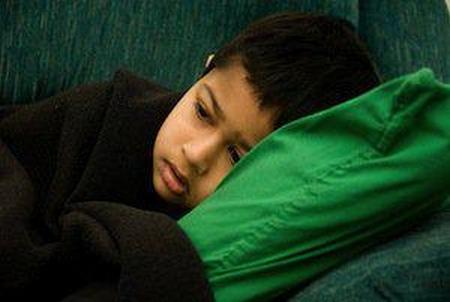Special Immigrant Juvenile Status: A Primer
 Much ink has spilled recently over the presence of thousands of undocumented children along the U.S.’s southern border. However, discussion seems to be focused on their right to be in the United States at all, and very few people are familiar with the path taken to stay here. A portion of these undocumented children will not have grounds to stay in the United States, but those who do may very well do so under Special Immigrant Juvenile (SIJ) status.
Much ink has spilled recently over the presence of thousands of undocumented children along the U.S.’s southern border. However, discussion seems to be focused on their right to be in the United States at all, and very few people are familiar with the path taken to stay here. A portion of these undocumented children will not have grounds to stay in the United States, but those who do may very well do so under Special Immigrant Juvenile (SIJ) status.
The SIJ program was originally designed to assist foreign children in the United States who had been abused, neglected, or abandoned by their caregivers (regardless of the citizenship of their caregivers). The program was passed in 1990 and revamped in 2008. Under the program, children who meet certain standards may be able to remain in the U.S. as Lawful Permanent Residents (LPRs).
Eligibility
To obtain SIJ status, a child must:
- Be under the age of 21 on the petition's filing date;
- Be unmarried;
- Be inside the United States;
- Ask HHS for permission before the child can be placed elsewhere, if the child in the custody of the Department of Health and Human Services; and
- Have a court order from juvenile court stating the following:
- That the child is a dependent of the court, or can be legally placed with a state or private agency (or a private person);
- It is "not in the child’s best interests" to be returned to the home country; and
- The child cannot be reunited with either parent due to abuse, neglect, abandonment, or any similar reason under the law of the state in which the child is applying.
Once a child has established possible eligibility for SIJ, the child needs to provide proof that he or she is eligible for a green card, using the same criteria as other potential LPRs. While the child needs to meet all the eligibility requirements, his or her SIJ status does mean that many bars to receiving LPR status do not apply. For example, most green card applicants are not eligible if they are unlawfully present in the country. This does not apply to Special Immigrant Juveniles, who are by necessity unlawfully present in the country.
The Application Process
USCIS generally interviews all SIJ applicants, unless coming to the interview would be an extreme hardship. Once the petitions have been submitted (for both SIJ status and LPR status, which are generally filed at the same time), USCIS will schedule an interview. It is possible for the interview to be waived, but that decision is entirely within the officer’s discretion. Generally, if a child is over 14 years of age and has no extenuating circumstances, the interview will be held.
The interview will not be unlike a standard citizenship interview—the juvenile will be asked about the information in his or her petitions, about his or her criminal history, and generally about anything which would affect a decision. If the child is interviewed by a field office, the decision on the petitions will be made at the interview, but if not, it will come within 180 days (since 2011 there has been increased oversight to ensure that people are not kept in legal limbo any longer than necessary).
If both petitions are approved, the child will receive a green card in the mail within 90 days. If the child is denied, he or she will receive a notice regarding why, and how they are able to correct the defects.
Contact an Immigration Attorney
If you or a loved one is in the process of obtaining special immigrant juvenile status, and need help, Mevorah & Giglio Law Offices can provide it. Contact our DuPage County immigration lawyers today for a free consultation.
 English,
English,
 Spanish,
Spanish,
 Polish,
Polish,
 Urdu
Urdu













 Make a Payment
Make a Payment



